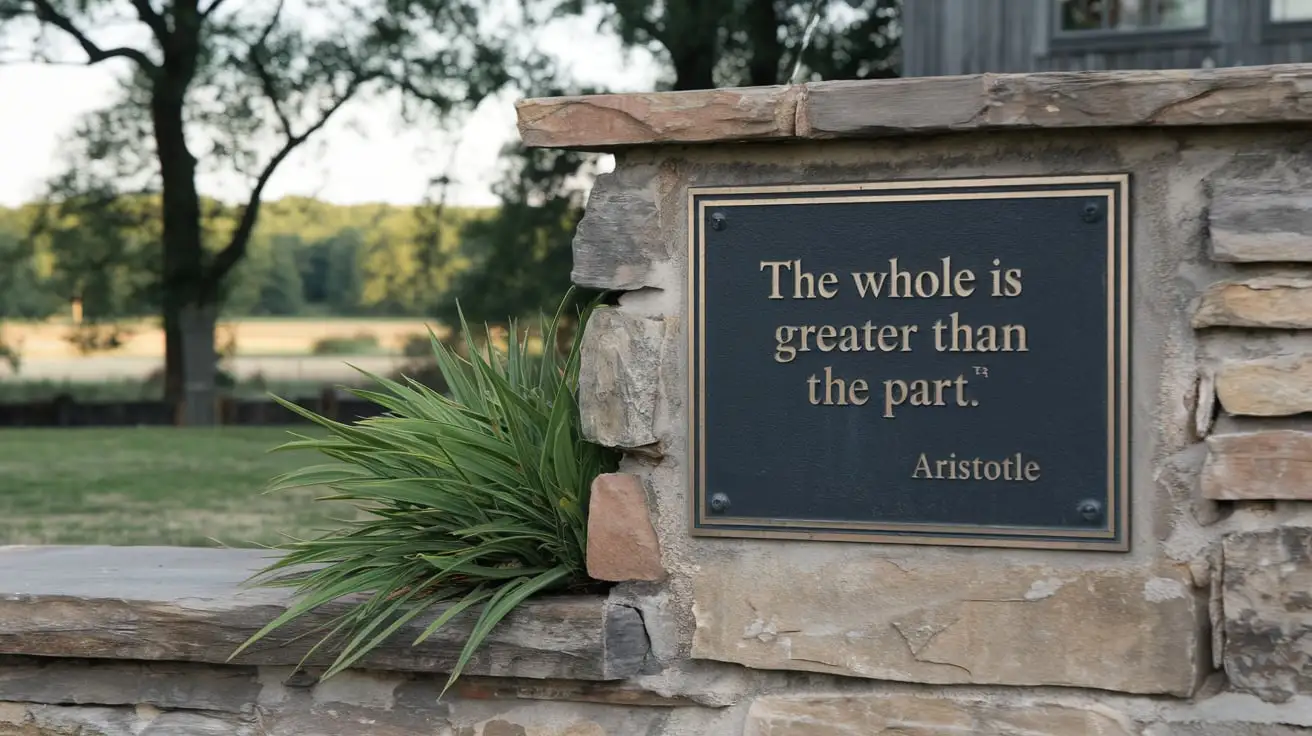In this collection, we’ll explore Aristotle Quotes on a variety of topics, each quote accompanied by a brief explanation to help you understand its significance.
Aristotle, one of the most influential philosophers in history, has left behind a treasure trove of wisdom that spans various fields, including ethics, politics, metaphysics, and science.
His teachings continue to shape modern thought, and his quotes offer profound insights into human nature, the pursuit of knowledge, and the art of living a good life.
On Knowledge and Education
“The more you know, the more you realize you don’t know.”
Author: Aristotle
Description:
Aristotle highlights the paradox of knowledge understanding more about the world often reveals how much remains unknown, fostering intellectual humility.
“Educating the mind without educating the heart is no education at all.”
Author: Aristotle
Description:
Aristotle emphasizes that true education goes beyond intellectual development, requiring the cultivation of moral and emotional understanding as well.
“It is the mark of an educated mind to be able to entertain a thought without accepting it.”
Author: Aristotle
Description:
Aristotle advocates for intellectual openness, suggesting that a truly educated person can consider different ideas critically without necessarily endorsing them.
“The roots of education are bitter, but the fruit is sweet.”
Author: Aristotle
Description:
Aristotle acknowledges the challenges and hardships of the learning process, but he assures us that the rewards of education are ultimately fulfilling and worthwhile.
“All men by nature desire knowledge.”
Author: Aristotle
Description:
Aristotle asserts that the pursuit of knowledge is an inherent human drive, reflecting our natural curiosity and desire to understand the world.
“Learning is not child’s play; we cannot learn without pain.”
Author: Aristotle
Description:
Aristotle reminds us that learning often involves struggle and effort, suggesting that personal growth requires enduring discomfort and difficulty.
“The one exclusive sign of thorough knowledge is the power of teaching.”
Author: Aristotle
Description:
Aristotle believes that the ability to effectively teach others is a true indication of deep understanding, as it requires clear communication and mastery of the subject.
“He who has overcome his fears will truly be free.”
Author: Aristotle
Description:
Aristotle links knowledge and courage, suggesting that overcoming ignorance and fear through learning leads to true freedom.
“The energy of the mind is the essence of life.”
Author: Aristotle
Description:
Aristotle emphasizes the importance of mental activity and intellectual engagement, viewing them as central to living a meaningful and vibrant life.
“We are what we repeatedly do. Excellence, then, is not an act, but a habit.”
Author: Aristotle
Description:
Aristotle highlights the role of practice and consistency in achieving excellence, suggesting that our actions shape our character over time.
On Ethics and Virtue
“Happiness depends upon ourselves.”
Author: Aristotle
Description:
Aristotle believes that true happiness comes from within and is the result of virtuous living and self-mastery, rather than external circumstances.
“The aim of the wise is not to secure pleasure, but to avoid pain.”
Author: Aristotle
Description:
Aristotle suggests that a wise person focuses on minimizing suffering rather than pursuing fleeting pleasures, emphasizing the importance of long-term well-being.
“Moral excellence comes about as a result of habit.”
Author: Aristotle
Description:
Aristotle argues that virtues are developed through consistent practice and repetition, becoming ingrained in our character over time.
“I count him braver who overcomes his desires than him who conquers his enemies; for the hardest victory is over self.”
Author: Aristotle
Description:
Aristotle values self-control and discipline, considering the conquest of one’s desires to be the greatest and most challenging form of bravery.
“It is the mark of a good action that it is done with deliberation and for a noble end.”
Author: Aristotle
Description:
Aristotle stresses the importance of intentionality in ethical behavior, suggesting that good actions are those performed thoughtfully and with a virtuous purpose.
“The virtue of justice consists in moderation, as regulated by wisdom.”
Author: Aristotle
Description:
Aristotle connects justice with moderation and wisdom, proposing that just actions are those that balance various interests and are guided by reason.
“To enjoy the things we ought and to hate the things we ought has the greatest bearing on excellence of character.”
Author: Aristotle
Description:
Aristotle underscores the significance of aligning our likes and dislikes with what is morally right, as this alignment fosters virtuous character.
“Courage is the first of human qualities because it is the quality which guarantees the others.”
Author: Aristotle
Description:
Aristotle regards courage as foundational to all other virtues, as it empowers individuals to act rightly even in the face of fear or difficulty.
“Patience is bitter, but its fruit is sweet.”
Author: Aristotle
Description:
Aristotle recognizes the difficulty of practicing patience but assures us that its rewards—such as personal growth and fulfillment—are well worth the effort.
“Knowing yourself is the beginning of all wisdom.”
Author: Aristotle
Description:
Aristotle emphasizes the importance of self-awareness as the foundation of wisdom, suggesting that understanding oneself is crucial to living a virtuous life.
On Politics and Society
“Man is by nature a political animal.”
Author: Aristotle
Description:
Aristotle asserts that humans are inherently social beings who thrive in community life and that participation in politics is a natural extension of this social nature.
“The best political community is formed by citizens of the middle class.”
Author: Aristotle
Description:
Aristotle believes that a strong and stable society is built on a robust middle class, which he sees as balancing the extremes of wealth and poverty.
“The worst form of inequality is to try to make unequal things equal.”
Author: Aristotle
Description:
Aristotle warns against forced equality, suggesting that it’s unjust to treat fundamentally different things as if they were the same, particularly in matters of merit and ability.
“Poverty is the parent of revolution and crime.”
Author: Aristotle
Description:
Aristotle links economic hardship to social instability, arguing that poverty often drives people to desperate actions, including crime and rebellion.
“Democracy is when the indigent, and not the men of property, are the rulers.”
Author: Aristotle
Description:
Aristotle critiques democracy by pointing out the potential dangers of rule by the poor, who might prioritize their own needs over the common good.
“In a democracy, the poor will have more power than the rich, because there are more of them, and the will of the majority is supreme.”
Author: Aristotle
Description:
Aristotle discusses the principle of majority rule in a democracy, acknowledging the numerical advantage of the poor and the implications this has for governance.
“He who cannot be a good follower cannot be a good leader.”
Author: Aristotle
Description:
Aristotle stresses the importance of learning to follow before leading, suggesting that effective leadership requires first understanding and respecting the role of a follower.
“The law is reason, free from passion.”
Author: Aristotle
Description:
Aristotle advocates for the rule of law, emphasizing that laws should be based on rational principles rather than emotions, ensuring fairness and justice.
“A constitution is the arrangement of magistracies in a state.”
Author: Aristotle
Description:
Aristotle defines a constitution as the framework that organizes the different branches of government, highlighting its importance in maintaining order and governance.
“The good of man must be the end of the science of politics.”
Author: Aristotle
Description:
Aristotle argues that the ultimate goal of politics should be the well-being and flourishing of the people, making it a noble and essential pursuit.
On Friendship and Relationships
“A friend to all is a friend to none.”
Author: Aristotle
Description:
Aristotle cautions against superficial friendships, suggesting that true friendship requires depth and exclusivity, which cannot be extended to everyone.
“Friendship is essentially a partnership.”
Author: Aristotle
Description:
Aristotle views friendship as a mutual relationship built on shared values and goals, where both parties contribute to and benefit from the connection.
“Wishing to be friends is quick work, but friendship is a slow-ripening fruit.”
Author: Aristotle
Description:
Aristotle emphasizes that while the desire for friendship can arise quickly, building a deep and lasting friendship takes time and effort.
“In poverty and other misfortunes of life, true friends are a sure refuge.”
Author: Aristotle
Description:
Aristotle highlights the importance of friendship during difficult times, suggesting that true friends provide comfort and support when we need it most.
“Without friends, no one would choose to live, though he had all other goods.”
Author: Aristotle
Description:
Aristotle underscores the centrality of friendship to a fulfilling life, arguing that even the greatest material wealth is meaningless without the companionship of friends.
“My best friend is the man who in wishing me well wishes it for my sake.”
Author: Aristotle
Description:
Aristotle defines a true friend as someone who genuinely desires the best for us, not for any personal gain, but purely out of goodwill.
“The antidote for fifty enemies is one friend.”
Author: Aristotle
Description:
Aristotle suggests that the support of a true friend can outweigh the negativity of many adversaries, highlighting the power of friendship.
“Friendship is a single soul dwelling in two bodies.”
Author: Aristotle
Description:
Aristotle poetically describes the deep connection of true friendship, where two individuals share such a strong bond that they seem to share the same soul.
“A friend is another self.”
Author: Aristotle
Description:
Aristotle emphasizes the closeness of true friends, suggesting that in a profound friendship, the friend becomes an extension of oneself.
“Love is composed of a single soul inhabiting two bodies.”
Author: Aristotle
Description:
Aristotle extends his view of friendship to romantic love, where two people are so deeply connected that they are united in spirit, despite being two separate beings.
On Leadership and Governance
“He who has never learned to obey cannot be a good commander.”
Author: Aristotle
Description:
Aristotle stresses the importance of learning to follow before one can effectively lead, as understanding the role of a subordinate is crucial to being a wise leader.
“The character of a man is known from his conversations.”
Author: Aristotle
Description:
Aristotle suggests that a person’s true nature is revealed through their speech and interactions with others, highlighting the importance of communication in leadership.
“It is not enough to win a war; it is more important to organize the peace.”
Author: Aristotle
Description:
Aristotle emphasizes that true leadership involves not just achieving victory, but also ensuring lasting peace and stability in the aftermath of conflict.
“A tyrant must put on the appearance of uncommon devotion to religion.”
Author: Aristotle
Description:
Aristotle warns that tyrants often use religious devotion as a facade to gain and maintain power, manipulating public perception to secure their rule.
“Great men are always of a nature originally melancholy.”
Author: Aristotle
Description:
Aristotle observes that many great leaders and thinkers possess a melancholic disposition, which he associates with deep reflection and introspection.
“The best way to avoid envy is to deserve the success you get.”
Author: Aristotle
Description:
Aristotle advises that genuine merit is the antidote to envy, suggesting that earning success through hard work and virtue minimizes resentment from others.
“The law is reason unaffected by desire.”
Author: Aristotle
Description:
Aristotle advocates for laws to be based on rationality and justice, free from the influence of personal desires and emotions.
“Inferiors revolt so that they may be equal, and equals that they may be superior.”
Author: Aristotle
Description:
Aristotle discusses the motivations behind political revolutions, noting that those who feel inferior seek equality, while those who consider themselves equal strive for superiority.
“A good man should not calculate the chances of living or dying; he should consider whether what he is doing is right or wrong.”
Author: Aristotle
Description:
Aristotle emphasizes the importance of moral integrity in leadership, suggesting that ethical considerations should outweigh concerns about personal survival.
“The end of labor is to gain leisure.”
Author: Aristotle
Description:
Aristotle views work as a means to an end, with the ultimate goal being leisure, which he sees as essential for personal fulfillment and intellectual growth.
On Art and Creativity
“Art aims to represent not the outward appearance of things, but their inward significance.”
Author: Aristotle
Description:
Aristotle defines art as a medium that captures the essence of its subject, focusing on deeper meaning rather than mere physical likeness.
“Poetry is finer and more philosophical than history; for poetry expresses the universal, and history only the particular.”
Author: Aristotle
Description:
Aristotle contrasts poetry with history, suggesting that poetry transcends individual events to reveal universal truths, making it a more profound art form.
“The soul never thinks without a picture.”
Author: Aristotle
Description:
Aristotle highlights the role of imagination in thought, emphasizing that creative imagery is essential to the process of understanding and expression.
“Art, like morality, consists in drawing the line somewhere.”
Author: Aristotle
Description:
Aristotle compares art to ethics, suggesting that both involve making choices and setting boundaries that define their character and value.
“To perceive is to suffer.”
Author: Aristotle
Description:
Aristotle connects artistic creativity with emotional experience, implying that the act of perception, particularly in art, often involves an element of suffering.
“Change in all things is sweet.”
Author: Aristotle
Description:
Aristotle reflects on the beauty of change, suggesting that transformation and variation are essential aspects of both life and art.
“The aim of the wise is not to secure pleasure, but to avoid pain.”
Author: Aristotle
Description:
Aristotle advises that wisdom in art, as in life, lies in pursuing a balance that avoids excess and focuses on creating works that endure.
“The weakest arm is strong enough that strikes with the sword of justice.”
Author: Aristotle
Description:
Aristotle uses a metaphor to convey the power of art to communicate justice, suggesting that even modest efforts can have a profound impact when aligned with truth.
“Learning is an ornament in prosperity, a refuge in adversity, and a provision in old age.”
Author: Aristotle
Description:
Aristotle emphasizes the enduring value of knowledge and creativity, which enrich our lives at every stage and offer solace during challenging times.
“We must regard every artist as a blessed soul, for he can see in all things an art that escapes the rest of us.”
Author: Aristotle
Description:
Aristotle celebrates the unique vision of artists, who can perceive beauty and meaning in the world that others might overlook.
On Logic and Reasoning
“It is the mark of an educated mind to be able to entertain a thought without accepting it.”
Author: Aristotle
Description:
Aristotle advocates for intellectual open-mindedness, suggesting that a truly educated person can consider different ideas critically without necessarily agreeing with them.
“The law is reason unaffected by desire.”
Author: Aristotle
Description:
Aristotle emphasizes that laws should be based on rationality and justice, rather than being influenced by personal desires or emotions, to ensure fairness.
“The whole is greater than the sum of its parts.”
Author: Aristotle
Description:
Aristotle introduces the idea of synergy, where the combination of elements creates something more significant than just the individual parts, applicable to logic, teamwork, and more.
“To say of what is, that it is not, or of what is not, that it is, is false, while to say of what is, that it is, and of what is not, that it is not, is true.”
Author: Aristotle
Description:
Aristotle straightforwardly defines truth and falsehood, emphasizing the importance of accuracy in our statements and beliefs.
“We are what we repeatedly do. Excellence, then, is not an act, but a habit.”
Author: Aristotle
Description:
Aristotle highlights that consistent practice and discipline are key to achieving excellence, implying that our actions define our character and outcomes.
“He who is to be a good ruler must have first been ruled.”
Author: Aristotle
Description:
Aristotle suggests that effective leadership requires experience as a follower, as this fosters empathy and understanding of those being led.
“The high-minded man must care more for the truth than for what people think.”
Author: Aristotle
Description:
Aristotle values truth above public opinion, indicating that a person of integrity should prioritize honesty and accuracy over popular acceptance.
“Reason is a light that shines within us.”
Author: Aristotle
Description:
Aristotle views reason as an inherent guiding force in humans, illuminating our understanding and guiding our actions toward truth and virtue.
“For the things we have to learn before we can do them, we learn by doing them.”
Author: Aristotle
Description:
Aristotle acknowledges that practical experience is often the best teacher, reinforcing the idea that learning by doing is essential to mastering any skill.
“The ultimate end of theoretical knowledge is truth, and the ultimate end of practical knowledge is action.”
Author: Aristotle
Description:
Aristotle distinguishes between theoretical and practical knowledge, emphasizing that while understanding truth is important, applying that knowledge through action is equally crucial.
On the Pursuit of Wisdom
“Knowing yourself is the beginning of all wisdom.”
Author: Aristotle
Description:
Aristotle stresses the importance of self-awareness as the foundation of wisdom, suggesting that understanding oneself is crucial to living a virtuous and meaningful life.
“Wisdom is the knowledge of first causes and principles.”
Author: Aristotle
Description:
Aristotle defines wisdom as understanding the fundamental causes and principles that underlie reality, which allows one to comprehend the world at a deeper level.
“The wise man does not expose himself needlessly to danger, since there are few things for which he cares sufficiently; but he is willing, in great crises, to give even his life—knowing that under certain conditions it is not worthwhile to live.”
Author: Aristotle
Description:
Aristotle suggests that a wise person values life but understands that some situations may require self-sacrifice, highlighting the balance between caution and courage.
“He who knows all the answers has not been asked all the questions.”
Author: Aristotle
Description:
Aristotle hints at the endless pursuit of knowledge, implying that wisdom involves recognizing the limits of one’s understanding and remaining open to new questions.
“The more you know, the more you realize you don’t know.”
Author: Aristotle
Description:
Aristotle acknowledges the paradox of knowledge, where greater understanding often reveals the vastness of what remains unknown, fostering intellectual humility.
“The wise man speaks because he has something to say; the fool because he has to say something.”
Author: Aristotle
Description:
Aristotle contrasts the communication styles of the wise and the foolish, emphasizing the value of thoughtful, purposeful speech over idle chatter.
“The educated differ from the uneducated as much as the living differ from the dead.”
Author: Aristotle
Description:
Aristotle draws a sharp distinction between the educated and the uneducated, suggesting that education is vital to truly living and understanding the world.
“Wisdom is the virtue of the mind, and courage is the virtue of the heart.”
Author: Aristotle
Description:
Aristotle pairs wisdom with mental strength and courage with emotional strength, indicating that both are necessary for a well-rounded and virtuous life.
“The more one knows, the more one comprehends the complexity of life.”
Author: Aristotle
Description:
Aristotle suggests that increased knowledge leads to a deeper appreciation of life’s intricacies, emphasizing the richness of understanding that comes with wisdom.
“Those who know, do. Those that understand, teach.”
Author: Aristotle
Description:
Aristotle differentiates between knowledge and understanding, indicating that true comprehension often manifests in the ability to teach others effectively.
On Happiness and the Good Life
“Happiness is the meaning and the purpose of life, the whole aim and end of human existence.”
Author: Aristotle
Description:
Aristotle asserts that happiness is the ultimate goal of life, suggesting that all human actions should aim toward achieving a state of true fulfillment.
“Happiness depends upon ourselves.”
Author: Aristotle
Description:
Aristotle emphasizes that happiness is largely within our control and results from living a virtuous life, rather than relying on external factors.
“The good life is one inspired by love and guided by knowledge.”
Author: Aristotle
Description:
Aristotle connects the concepts of love and knowledge, suggesting that a fulfilling life is driven by compassion and informed by wisdom.
“Happiness is a state of activity.”
Author: Aristotle
Description:
Aristotle believes that happiness is not a passive experience but comes from actively engaging in life and pursuing virtuous activities.
“It is during our darkest moments that we must focus to see the light.”
Author: Aristotle
Description:
Aristotle encourages resilience, suggesting that even in difficult times, one should remain focused on finding hope and positivity.
“The ultimate value of life depends upon awareness and the power of contemplation rather than upon mere survival.”
Author: Aristotle
Description:
Aristotle argues that the quality of life is determined by our ability to think deeply and live consciously, rather than just existing day to day.
“The high-minded man must care more for the truth than for what people think.”
Author: Aristotle
Description:
Aristotle emphasizes the importance of truth over public opinion, suggesting that integrity involves prioritizing honesty and accuracy over social acceptance.
“The energy of the mind is the essence of life.”
Author: Aristotle
Description:
Aristotle highlights the significance of mental activity in living a vibrant and meaningful life, suggesting that our thoughts and ideas are central to our existence.
“The good of man must be the end of the science of politics.”
Author: Aristotle
Description:
Aristotle argues that the ultimate goal of politics should be the well-being and flourishing of people, making it a noble and essential pursuit.
“We live in deeds, not years; in thoughts, not breaths; in feelings, not figures on a dial.”
Author: Aristotle
Description:
Aristotle suggests that the true measure of life is not its duration but the richness of our experiences, thoughts, and emotions.
On Moral Character
“Moral excellence comes about as a result of habit.”
Author: Aristotle
Description:
Aristotle emphasizes that moral virtue is developed through habitual practice, suggesting that consistent good actions form the basis of moral character.
“The life of money-making is one of the lowest forms of life.”
Author: Aristotle
Description:
Aristotle criticizes the pursuit of wealth as a primary life goal, viewing it as less noble compared to a life dedicated to intellectual and ethical pursuits.
“The good of man must be the end of the science of politics.”
Author: Aristotle
Description:
Aristotle argues that the ultimate goal of politics should be the well-being and flourishing of individuals, making the pursuit of the common good central to political activity.
“The ultimate end of labor is to gain leisure.”
Author: Aristotle
Description:
Aristotle sees work as a means to achieve leisure, which he considers essential for personal fulfillment and intellectual growth, reflecting on the balance between work and rest.
“The more one knows, the more one comprehends the complexity of life.”
Author: Aristotle
Description:
Aristotle observes that greater knowledge often reveals the intricate nature of life, suggesting that deeper understanding brings a richer appreciation of its complexities.
“A good man should not calculate the chances of living or dying; he should consider whether what he is doing is right or wrong.”
Author: Aristotle
Description:
Aristotle stresses the importance of ethical considerations over concerns about personal survival, suggesting that moral integrity should guide one’s actions.
“To perceive is to suffer.”
Author: Aristotle
Description:
Aristotle connects perception with emotional experience, suggesting that the act of observing and understanding often involves an element of suffering.
“The wise man speaks because he has something to say; the fool because he has to say something.”
Author: Aristotle
Description:
Aristotle differentiates between meaningful and meaningless speech, valuing thoughtful communication over idle chatter.
“Happiness is a state of activity.”
Author: Aristotle
Description:
Aristotle believes that happiness results from actively engaging in virtuous activities, rather than being a passive state or result of external circumstances.
“The character of a man is known from his conversations.”
Author: Aristotle
Description:
Aristotle suggests that a person’s true nature is revealed through their words and interactions, highlighting the importance of communication in understanding character.










